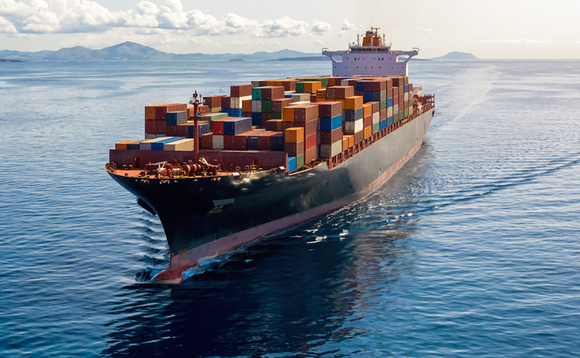
The global shipping industry could cut carbon emissions by almost 50 per cent before the end of the decade with minimal cost increases, a new report claims
The adoption of zero or near-zero emission fuels, wind-assistance technologies, and 'climate optimising' the speed of vessels could almost halve the global shipping industry's carbon emissions by 2030 without damaging trade, according to a new study by consultancy CE Delft.
Commissioned by Transport & Environment, Seas at Risk, Ocean Conservancy, and Pacific Environment, the analysis suggests the shipping industry could slash emissions by between 36 and 47 per cent by 2030 compared to 2008 levels while only adding around 10 per cent to total costs.
According to estimates from the University College London, these costs would be dwarfed by climate related damages to the industry and wider society if shipping fails to cut emissions in line with global climate goals, with every year of inaction this decade forecast to add an extra $100bn to the cost of ultimately decarbonising the sector.
Shipping remains one of the world's most carbon intensive industries, with many experts and industry groups arguing that it will prove extremely technically and economically difficult to decarbonise.
But today's report suggests emerging low carbon fuels and technologies, coupled with an optimisation of shipping routes have the potential to slash emissions across the sector. It estimates that halving the industry's emissions would be equivalent to shutting down 121 coal power plants.
The findings come as the UN's International Maritime Organisation (IMO) prepares to agree upon climate targets to reduce greenhouse gas emissions from ships at a meeting in July, with the body's 175 member states under mounting pressure from campaigners and some governments and industry groups to agree to a more ambitious package of policies to drive down emissions across the sector.
Last week's Climate Finance Summit in Paris saw several world leaders signal their support for a more ambitious climate policy regime for the global shipping industry.
However, previous attempts to get the IMO to approve more ambitious decarbonisation policies have been repeatedly stymied by a number of states that have argued that requiring shipping operators to pay carbon levies and ramp up investment in clean technologies would result in significant economic costs.
Faïg Abbasov, shipping director at Transport & Environment, called upon the International Maritime Organization to either "step up or ship out".
"Waiting until 2050 to decarbonise is a bit like waiting until your house burns down before you call the fire brigade," he said. "This would be irresponsible and disingenuous. Science says halving emissions by 2030 is technically possible, and costs are manageable. What is needed is the political will."
John Maggs, shipping director at Seas At Risk and president of the Clean Shipping Coalition, concurred that the task at hand is "crystal clear".
"Emissions from shipping have to halve by 2030 if we are to stand any chance of keeping warming below the Paris Agreement's 1.5C temperature limit," he said. "What was less clear until now was if this was possible without impacting trade.
"Now we know not only that it is possible and shipping has a clear pathway to halving its climate impact by 2030, but that it can do so at minimal cost."
The release of the new report comes as the IMO prepares to resume talks to revise its existing climate targets at an Intersessional Working Group meeting before concluding the process in early July at the 80th session of the Marine Environment Protection Committee meeting.
It also comes after many of the world's biggest buyers of maritime freight, including Amazon, IKEA, and Unilever, committed to operating zero-emission shipping by 2040, signalling their intention to gradually switch all their cargo bookings low carbon vessels.
Moreover, P&O Ferries recently launched its first hybrid vessel in an effort to cut carbon emissions from crossings made on the UK's most important trade routes, which are responsible for more than £144bn of goods by ferry alone.